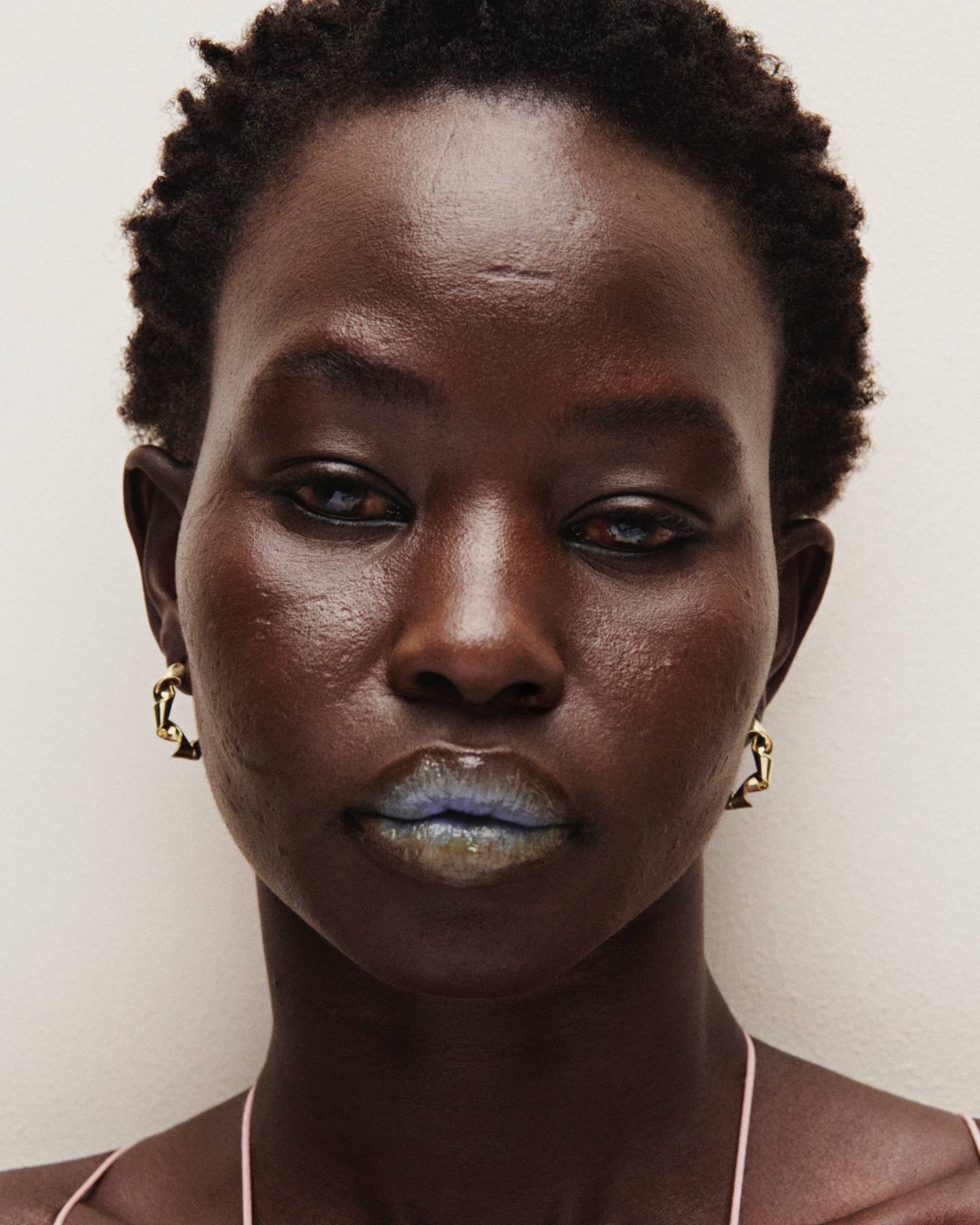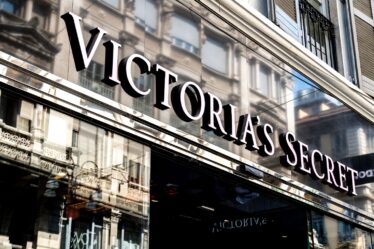
Until last fall, few had heard of Eighth Day or its “Regenerative Serum,” a blend of 24 “bioidentical” ingredients that costs $325 for a one-ounce bottle.
Then Violet Grey got to work. The beauty retailer gave samples to celebrities, industry experts and influential beauty editors, including January Jones and Gucci Westman. When the product went on sale, it was at first made available only to the retailer’s most loyal customers, who were alerted via text message. When the general public got a look a few days later, the brand’s product pages prominently featured a “Violet Code Approved” stamp.
Eighth Day’s serum has sold out five times since September. It’s the latest in a string of successes for Violet Grey, which has also had a hand in turning ultra-lux skin care lines Augustinus Bader and Dr Barbara Sturm into cult brands.
Violet Grey’s tastemaker status was a big reason Farfetch acquired the retailer in January, and its ability to turn obscure products into blockbusters is key to its new owner’s beauty ambitions. On Wednesday, Farfetch announced the launch of its beauty marketplace, which will host e-shops operated by 100 labels, including Eighth Day, Augustinus Bader and Dr Barbara Sturm, as well as La Mer, Westman Atelier, Tom Ford Beauty and more.
The exclusively e-concession format is a departure for the online luxury giant, which started as a platform for boutiques to sell their inventory to a global audience. That remains the norm in fashion, though large luxury brands such as Gucci and Moncler have recently steered more sales toward online shop-in-shops that they control.
In addition to its online beauty marketplace, Farfetch is also expanding in the real world. Browns, the London department store it acquired in 2015, will introduce 90 beauty lines online and in its two stores, which will also provide services and treatments. To start, Sunday Riley will have a residency at the East London store and Natura Bisse will offer facials in the Mayfair location.
Violet Grey will also still operate a separate e-commerce site and its store on Los Angeles’ Melrose Place and will be the only multi-brand beauty shop on the new marketplace.
Founder Cassandra Grey herself has a few new roles: she’s the chair of Violet Grey, a global advisor for Farfetch Beauty and the co-founder of NGG Beauty, a new arm of New Guards Group, the brand incubator behind Off-White and other luxury streetwear labels that Farfetch acquired in 2019. At NGG Beauty, Grey will both incubate new brands and build out beauty offerings for existing labels like Off-White. Off-White “Paperwork,” a line of fragrance, will be the first of three beauty categories.
“What Farfetch is doing is saying, ‘we recognize we don’t have the same tastemaking in beauty, we don’t have the content, we don’t have the people and the relationships.’ They’re just buying that,” said Michelle Kluz, a partner at Kearney, a global consultancy.
Beauty From Every Angle
Farfetch will overnight become one of the biggest players in luxury beauty online.
Sephora stocks luxury brands like Augustinus Bader and La Mer, but still caters to a wider audience with prestige and more recently, lower-priced lines like The Ordinary and The Inkey List. Pure luxury retailers tend to be smaller, like Violet Grey (or Browns) and a large luxury e-tailer like Net-a-Porter, although it offers beauty, remains a fashion-first destination.
Experts say Farfetch is further along than other luxury players online that have entered the beauty category and is better equipped than non-luxury marketplaces that want to sell prestige beauty. Violet Grey, for example, brings elevated content and an authoritative voice (Violet Code products are approved by a “committee of industry experts”) that Amazon has struggled to match.
The marketplace has developed a reputation as luxury fashion’s Amazon, storming into new categories via high-profile acquisitions, including Browns and New Guards Group as well as the streetwear and sneaker marketplace Stadium Goods. In early April, Farfetch announced a $200 million investment in the Neiman Marcus Group and said it will power the sites and apps for Neiman Marcus and Bergdorf Goodman (which are both joining the company’s online marketplace).
Prior to the Violet Grey acquisition, Farfetch had tested the waters in beauty with a 2016 partnership with the UK-based Space NK. That deal has since ended (Space NK is going in another direction, announcing a collaboration with Walmart in March.)
This time around, Farfetch is taking a more aggressive stance; it’s diving into beauty as a retailer, a marketplace and beauty brand at the same time. Grey called Farfetch Beauty an “ecosystem.” Today’s launch will connect the dots between the launch of Off-White’s beauty (the four gender-neutral scents will be sold exclusively at Browns and on the marketplace through early May), Violet Grey’s marketplace storefront and Browns’ physical stores.
“It’s really one platform that is serving the same customer,” said Grey.
Beauty represents an opportunity to take an existing customer base of several million luxury fashion shoppers with an average order value that’s “well beyond the normal price for beauty” — and get them to buy skin care, makeup and fragrance, said Holli Rogers, chief brand officer at Farfetch.
Beauty can also play a role in customer acquisition. Farfetch and other online retailers are looking for ways to grow sales without having to lean so heavily on social media and search advertising. The relative affordability of many luxury beauty products — Hermès lipstick costs $72, a Birkin retails for over $10,000 — is a way to reach new audiences.
Rogers said Farfetch is rolling out a “whole content experience,” including a community platform where people can leave reviews and a “Beauty Global Collective” of nine beauty experts who will give behind the scenes access and share new products. Grey, Isamaya Ffrench, Erin Parsons, Nico Hiraga, and Violet Chachki are part of the collective.
A launch campaign, “Your Choice. Your Beauty. Your Farfetch,” is splashed on Farfetch Beauty’s homepage. It looks like a high production, glossy editorial and features Ffrench and models Amya Powell and Aweng Chuol.
Net-a-Porter, which launched beauty in 2013, also pairs product with best-in-class content. Still, beauty is a small portion of the e-tailer’s overall business and there’s no beauty specific “authority” on site.
“When you just think of Farfetch as a multi-brand destination, they’re already leapfrogging Net-a-Porter by several years,” Kluz said. “They don’t have to go through that curation process on their own and they don’t have to develop content. They’re already starting in a fairly strong position.”
Win-Win?
The upside for Farfetch is clear — the company can use data from its marketplace, retailers and brands to find its next acquisition target, create new beauty lines or adjust its assortment. The company can also see if there’s overlap between existing customers — on the fashion marketplace or with any New Guards Group brands — and those who visit any of Farfetch’s beauty properties.
“Farfetch can predict how people will react to new categories based on how Off-White customers are shopping other beauty brands,” said Kluz. “Data can inform product development, price point, colours. That’s powerful.”
For brands, the proposition is simple: gain exposure to Farfetch’s global customer base in exchange for handing the marketplace a 20 percent to 30 percent commission on each sale.
The format doesn’t appeal to everyone. Some large brands have decided they don’t need the additional exposure and don’t want a third-party retailer knowing who their customers are and how their products are selling. Smaller brands can baulk at the costs associated with marketplaces (in addition to commissions, sellers must also manage their own inventory and logistics).
Farfetch can offer those brands shelf space at Browns or Violet Grey, which operate under a traditional wholesale model, Rogers said.
Those retailers may be more effective as marketers for the brands they stock, as Eighth Day’s example shows.
“They know how to position a brand the right way and they know whose hands to get it in,” Dr Antony Nakhla, a dermatologist, dermatologic surgeon and founder and chief executive of Eighth Day, said of Violet Grey. “Once people start seeing their favourite makeup artist or esthetician or influential person starting to talk about a product genuinely — it’s not a paid partnership — everyone else follows. It’s a pretty well-studied phenomenon.”


